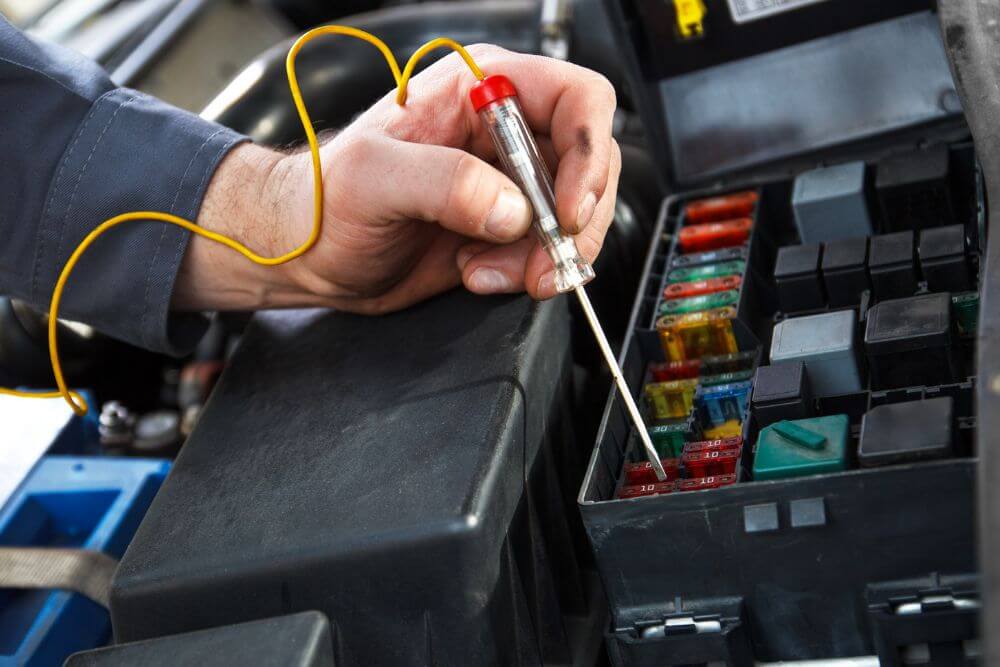When your vehicle’s electrical system starts acting up, it can be frustrating and confusing. Electrical problems can manifest in various ways, from a malfunctioning stereo system to issues with the starter or alternator. Understanding common electrical problems and knowing when to seek professional help can save you time, money, and headaches. Here’s a closer look at auto electrical repair:
Identifying Common Electrical Issues
- Dead Battery: One of the most common electrical issues is a dead or dying battery. Symptoms include difficulty starting the engine, dimming lights, and failing electronics.
- Faulty Alternator: The alternator is responsible for charging the battery and providing power to electrical components while the engine runs. Signs of a failing alternator include dimming headlights, warning lights on the dashboard, and a dead battery.
- Faulty Starter: A malfunctioning starter can prevent your vehicle from starting altogether. Symptoms include a clicking noise when turning the key, the engine cranking slowly, or no response when attempting to start the vehicle.
- Electrical Shorts: Shorts occur when wires or connections in the electrical system become damaged or corroded, disrupting the flow of electricity. Symptoms may include blown fuses, intermittent electrical issues, or sparks or smoke coming from the wiring.
- Faulty Wiring: Damaged or deteriorating wiring can lead to various electrical problems, including malfunctioning lights, power windows, or door locks. Wiring issues can be challenging to diagnose and require the expertise of a qualified technician.
Addressing Electrical Problems
- Diagnostic Testing: Diagnosing electrical issues often requires specialized equipment and expertise. A professional technician can perform diagnostic tests to pinpoint the root cause of the problem accurately.
- Component Replacement: Once the problem has been identified, the faulty electrical component may need to be repaired or replaced. This could involve replacing a dead battery, repairing damaged wiring, or installing a new alternator or starter.
- Preventive Maintenance: Regular maintenance can help prevent electrical problems before they occur. This includes inspecting the battery, alternator, and wiring for signs of wear or damage and addressing any issues promptly.
Seeking Professional Help
While some electrical issues may be minor and easily resolved, others can be complex, requiring specialized knowledge and tools to diagnose and repair. If you’re experiencing electrical problems with your vehicle, it’s essential to seek help from a qualified automotive technician. Attempting to diagnose or repair electrical issues yourself can lead to further damage and safety hazards.
Auto electrical repair can be complex and challenging, but understanding common issues and knowing when to seek professional help can help keep your vehicle running smoothly. Whether dealing with a dead battery, faulty alternator, or wiring problems, entrusting your vehicle to a qualified technician is the best way to ensure accurate diagnosis and reliable repairs. Don’t let electrical issues leave you stranded-address them promptly and proactively to keep your vehicle safe and dependable on the road.

